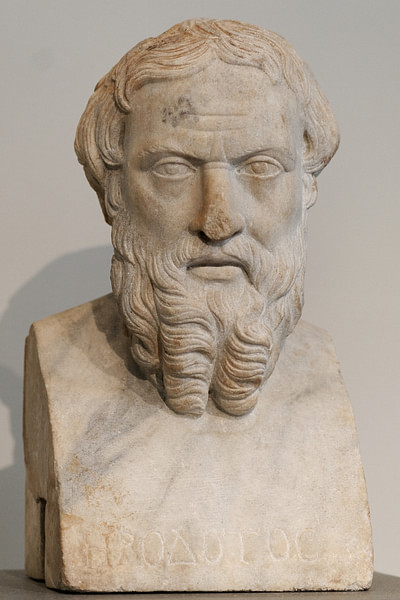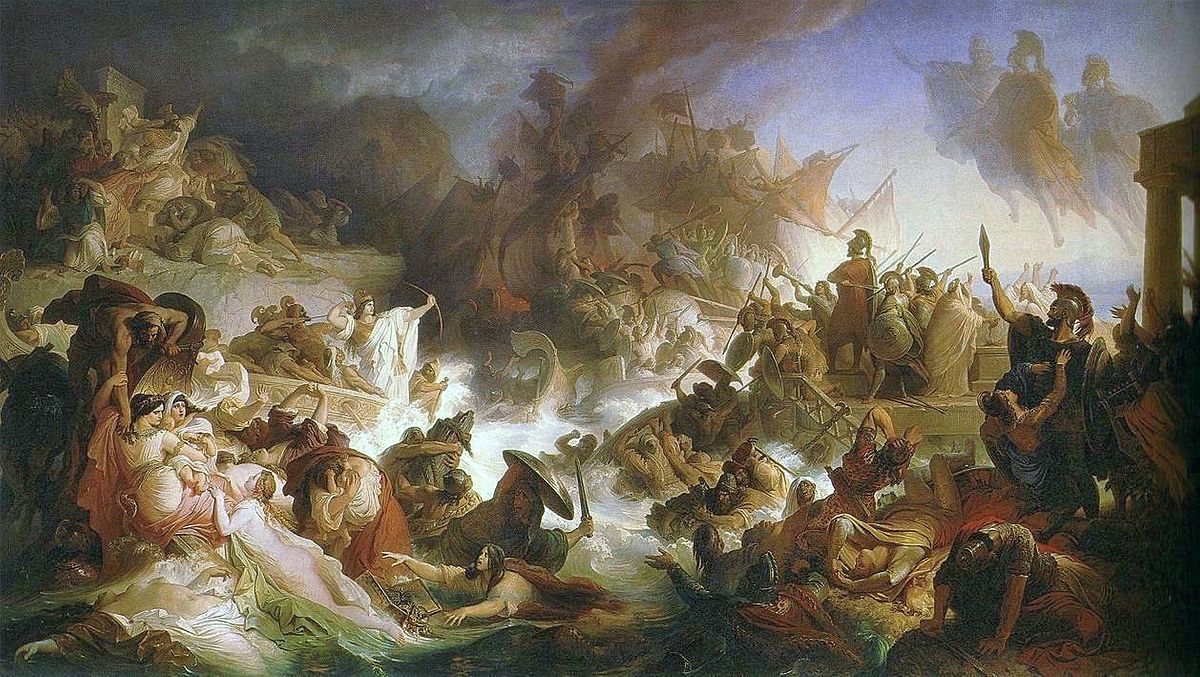Welcome to GREK 301 - Spring 2023
Course Information
- Meeting Time: T, Th 12:30 - 1:45 PM
- Meeting Place: Fenwick 420
- Standing Zoom Link:
- Instructor Prof. Machado
- Student Hours: T 2-3 PM; W 3-5 PM, Fenwick 413
- E-mail: dmachado@holycross.edu
The Greek historian Herodotus of Halicarnassus lived in the 5th century BCE and wrote his Histories in the context of the contemporaneous rise of the Athenian Empire. Composed in nine books, the Histories did not chronicle contemporaneous events, but rather provided his readers with a fascinating portrait of people, places, and the events all across the Mediterranean. Ending with an enthralling account of the Persian War (490 - 479 BCE), Herodotus sets out to tell about the thaumata (marvels) that he has discovered in his investigation of the ancient Mediterranean past.
In this course, we will read excerpts from the first four books of the Histories in hopes of exploring how Herodotus understood and constructed difference between different groups of people in the ancient Mediterranean world. We will do so using the lens of race and ethnicity to think critically about how Herodotus operates and to meditate on differences and similarities between the ancient Mediterranean and the world we inhabit today.
A special aspect of this course (and a first at Holy Cross!) is that we will have a number of joint meetings with Prof. Seider’s LATN 301 class over the course of the semester. They will be reading the Roman historian Livy and focusing on how gender and sexuality are constructed. Our joint meetings will give you an opportunity to learn about this topic as well as consider the different ways in which identity is socially configured. Your final project (a podcast) for the course will involve a collaboration with students from LATN 301.
Important Links
Everything that you need to know about this course is on this website. You can find out about course objectives, course policies, assessment, and our full course schedule.
In terms of books, you will not need any physical books. Below are a list of general resources you can use in the course:
- An online LSJ
- Smyth’s Greek grammar
- Book 1 text and commentary
- Book 2 text and commentary
- Book 3 text and commentary
- Book 4 text and commentary
- An older commentary on all of Herodotus
- A translation of all of Herodotus
- Sourcebook on race and ethnicity in the ancient world
- Classics resource guide
This Week at a Glance

Week 1 (1/23 - 1/27)
Tuesday, January 24
- Course introduction
- Introduction to Herodotus
- Preface
- Homework (due before class): Have a look through the course website and read our course objectives, course policies, assessment, and full course schedule. Bring any questions that you have to class.
Thursday, January 26
- Introduction to race and ethnicity
- Homework (due before class): Read Omi and Winant on racial formation and translate Herodotus 8.144.
- Assessment (due before class): In addition to this reading, you will write one or two paragraphs that reflect on a) what it means to you to participate in a class; b) how you have participated in past classes; c) what area of participation you would like to build on in this class and why; and d) what your goals are for group work, class discussion, and students hours, and share it with me via Google Docs.
